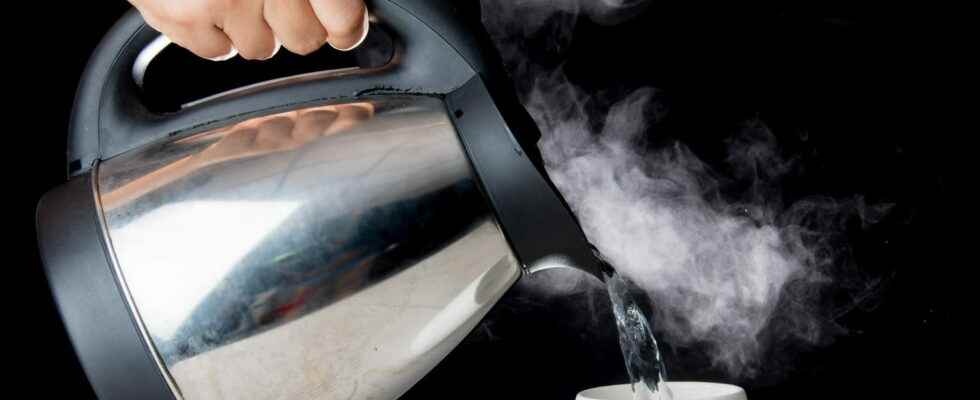Aperitif, starter, main course, cheese, dessert… Christmas and New Year meals are a big test for the digestive system. What to eat the next day? What to eat in the evening? Our tips.
[Mise à jour le 25 décembre 2022 à 19h00] Foie gras, log, chocolate… A hearty meal is heavier to digest since it requires significant digestive activity. The organization must therefore provide a more intense work to manage the large amount of proteins, carbohydrates and lipids that come in the blood. However, digestion has its limits and the more often we eat, in a caloric way, without chewing or by mixing lots of foods in the same meal, the more we exceed these limits! In addition to the typical symptoms such as heaviness, bloating… an overly hearty meal disrupts sleep as it prolongs digestion and increases thermogenesis. The increase in body temperature interferes with sleep. List of good advice to follow after a hearty meal.
1. Avoid fatty foods in the evening
Meats, dishes in sauce, pastries… Foods that are too fatty and/or too sweet tend to weigh on the stomach and slow down digestion. It is therefore better Avoid consuming them, especially in the evening after a heavy meal. In which case, digestion may be even more difficult and disrupt sleep.
2. Stay hydrated!
It is better to limit the consumption of alcohol which increases the acidity of the stomach and slows down digestion (especially white wine). During the holidays, you can drink it moderately, but remember to alternate with water. It is advisable to drink between 1.5 and 2 liters of water All day long. You can also consume herbal teas or fennel herbal teaof sageof ginger, etc., which promote digestion. To close the meal, a infusion of mint or lemon balm leaves is highly recommended! Another good idea: take in the morning on an empty stomach, juice of half a lemon diluted in a little water.
3. Chew and eat slowly
While the type of food eaten plays a big role in digestion, so does chewing. “When food is crushed and reduced to small pieces, even to a pulp, in the mouth, the work of the other digestive organs is facilitated. They tire less and digestion is lighter because the body uses much less energy to digest” explains Dr. Raphael Perez, in his book “Nutrition for optimal health”. In addition, the saliva produced during chewing contains an enzyme, ptyalin, which makes it possible to digest starch (found in starchy foods). Finally, chewing allows the brain to realize what we eat and thus regulate food intake according to our needs. It allows you to feel satiety more quickly.
4. Take probiotics
Probiotics can give a serious boost in getting the bowels back on track. These living organisms (bacteria or yeasts) rebalance the intestinal flora and thus reduce the risk of digestive disorders (constipation, bloating, diarrhea, etc.). Do not hesitate to take a cure before the holidays. Before you start, ask your pharmacist for advice.
5. No nap after eating
Lying down after a hearty meal is strongly discouraged! “The lying position interferes with transit, explains Geneviève de Lacour in her book “The intestine is life!” . Your digestive system is aided by gravity. Inevitably, horizontally, it will work less well. Also a napping away from mealtimes reduces stress and may aid digestion.” Lying down can also promote reflux of stomach contents into the esophagus. “If you really feel the need to lie down after eating, be careful to always elevate your upper body leaning on cushions for example.”
6. Go for a 30 minute walk
Practicing a sporting activity is a good way to activate digestion and lower blood sugar. Know that it is better toWait at least two hours after eating before exercising. But rest assured, you don’t have to run a marathon either. Indeed, if you don’t feel like jogging, then you can walk for 30 minutes or an hour. Walking helps relax the intestinal muscles and optimize their operation. If these tips are particularly valid before the end of year celebrations, they can also be perfectly adopted the rest of the year!
What to eat the next day?
After a heavy meal, there are several foods to avoid;
- spices
- fat food
- alcohol (especially white wine)
- the cold cuts
- cheeses (especially fermented)
- coffee
- sugar
In place : the morning at breakfast, take a light tea or infusion (mint, maté…), during the day favor fruits and vegetables and white meat, reducing fat consumption and limiting portions. If you have nausea, vomiting…in short, real indigestion, you have to put the digestive system to rest. On the menu: broths, cooked fruit (homemade applesauce for example), cooked vegetables, plain white rice. It is certainly restrictive but it is the only solution to get better.
